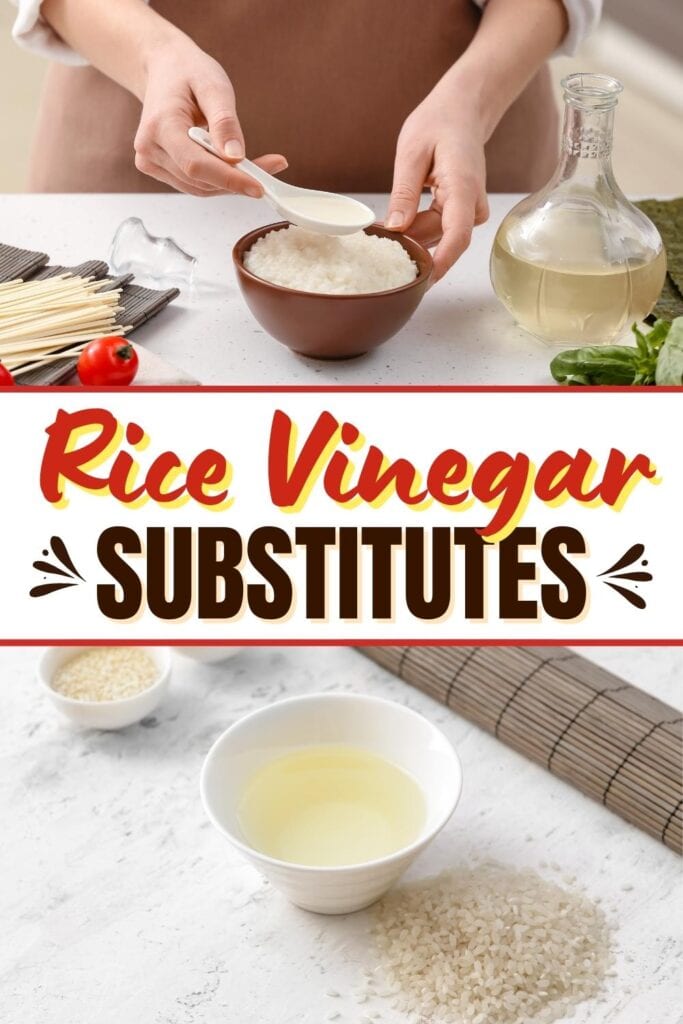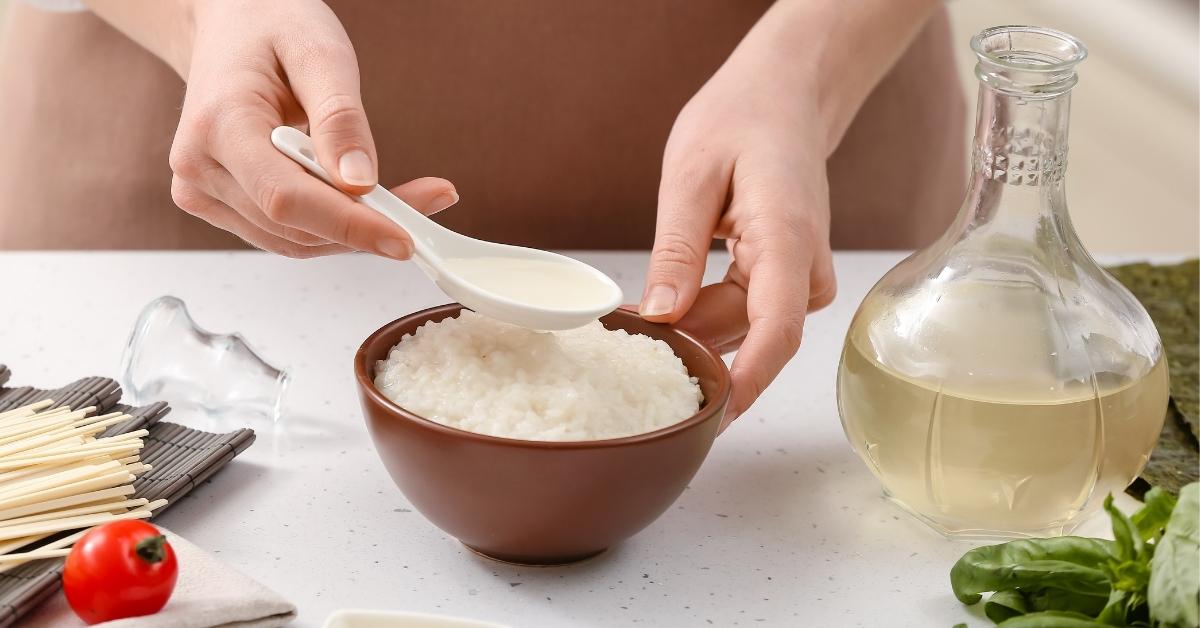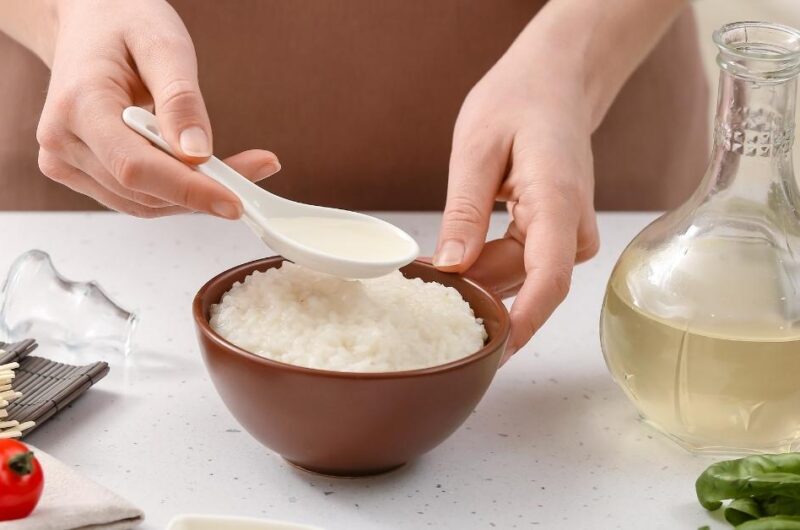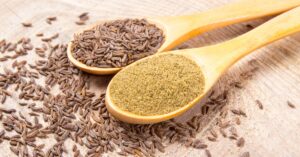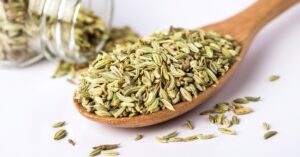There are tons of vinegar types, but rice vinegar isn’t one of the most popular.
That’s why knowing at least a few rice vinegar substitutes is essential.
Rice vinegar is versatile vinegar with a light and slightly sweet flavor.
It works well in various dishes but is most prevalent in Asian cuisine.
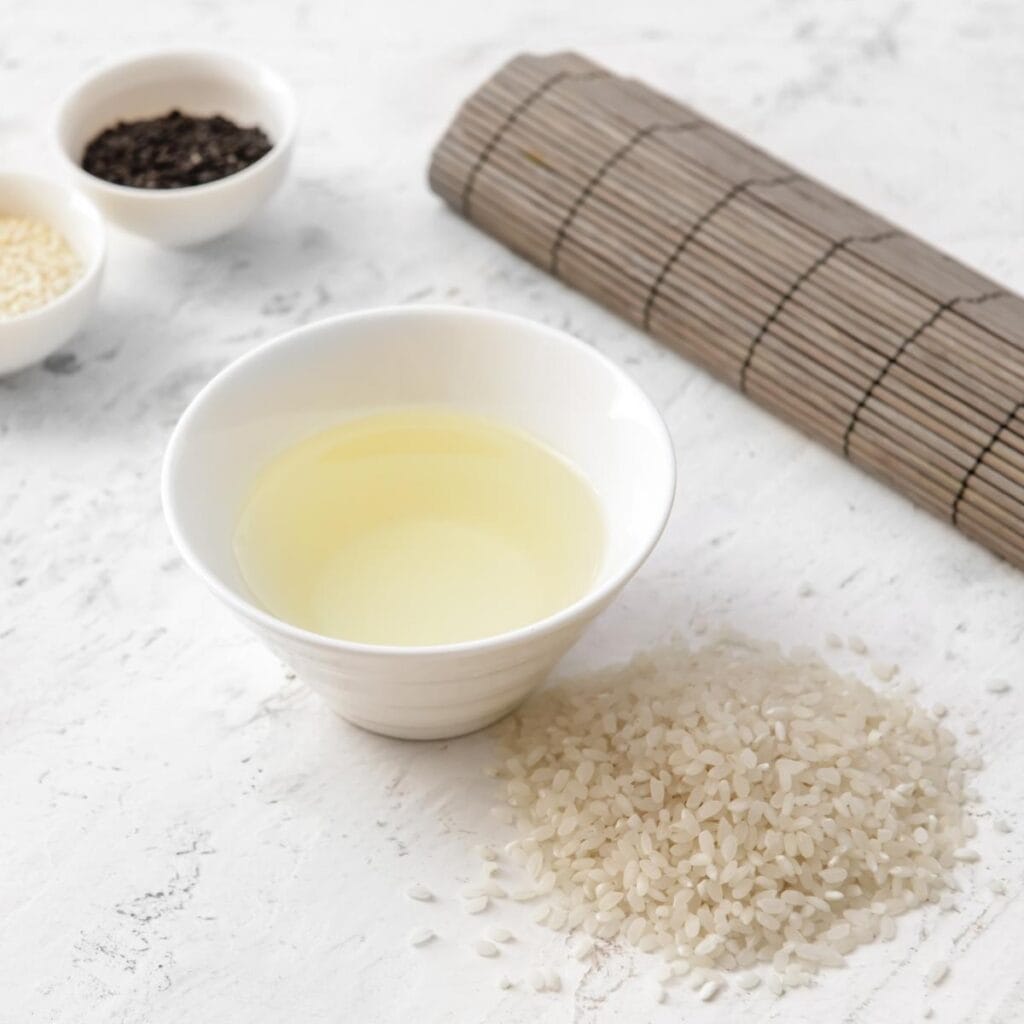
If you’re running low on rice vinegar or didn’t remember to buy any, don’t worry! These rice vinegar substitutes are sure to do the trick.
What is Rice Vinegar?
As mentioned above, rice vinegar is a staple in many Asian dishes. Of course, that doesn’t tell you what it is.
Rice vinegar is a type of vinegar made from fermented rice.
To make rice vinegar, manufacturers allow the sugars in rice to break down. As they do, they turn into alcohol; then, they become acidic.
It gives the vinegar an exciting flavor combination. It’s tangy and acidic, yes. However, it’s also lightly sweet, with a mild, unassuming flavor.
Unlike white vinegar, which is always clear, rice vinegar doesn’t always look the same.
Some brands sell clear-looking rice vinegar. Others manufacture rice vinegar that’s dark brown.
Despite the color, most brands share a similar taste.
Best Rice Vinegar Substitutes
The following is a list of the best rice vinegar substitutes.
Some of them are relatively common pantry staples.
Others may be more difficult to find. All make adequate replacements for rice vinegar.
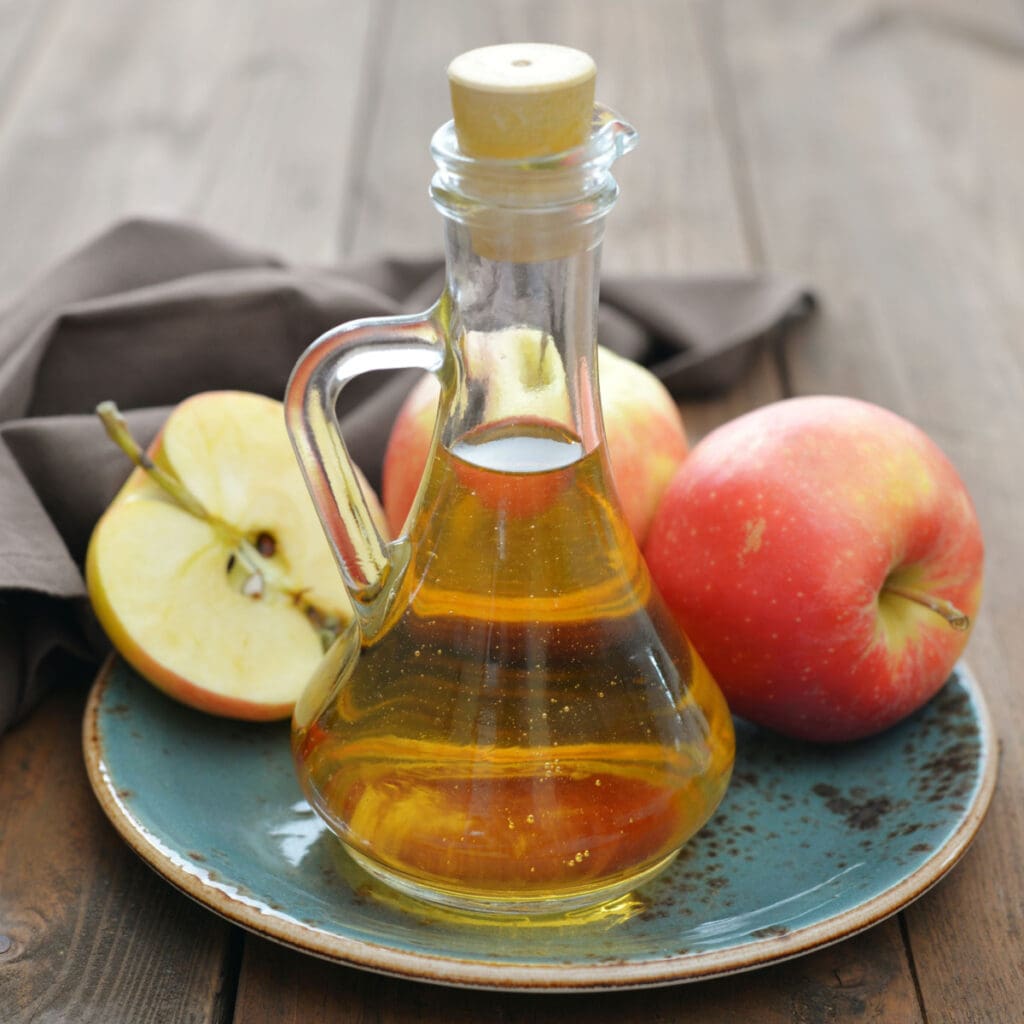
1. Apple Cider Vinegar
Even though it’s fruitier than rice vinegar, apple cider vinegar is a great substitute.
It has a similar sweet-n-tangy flavor profile that plays well in most Asian food.
Keep in mind that it does have an apple taste, though. You can swap it out at a one-to-one ratio.
However, you might not like it in recipes requiring a significant amount of rice vinegar.
It can make those dishes seem too sweet and fruity.
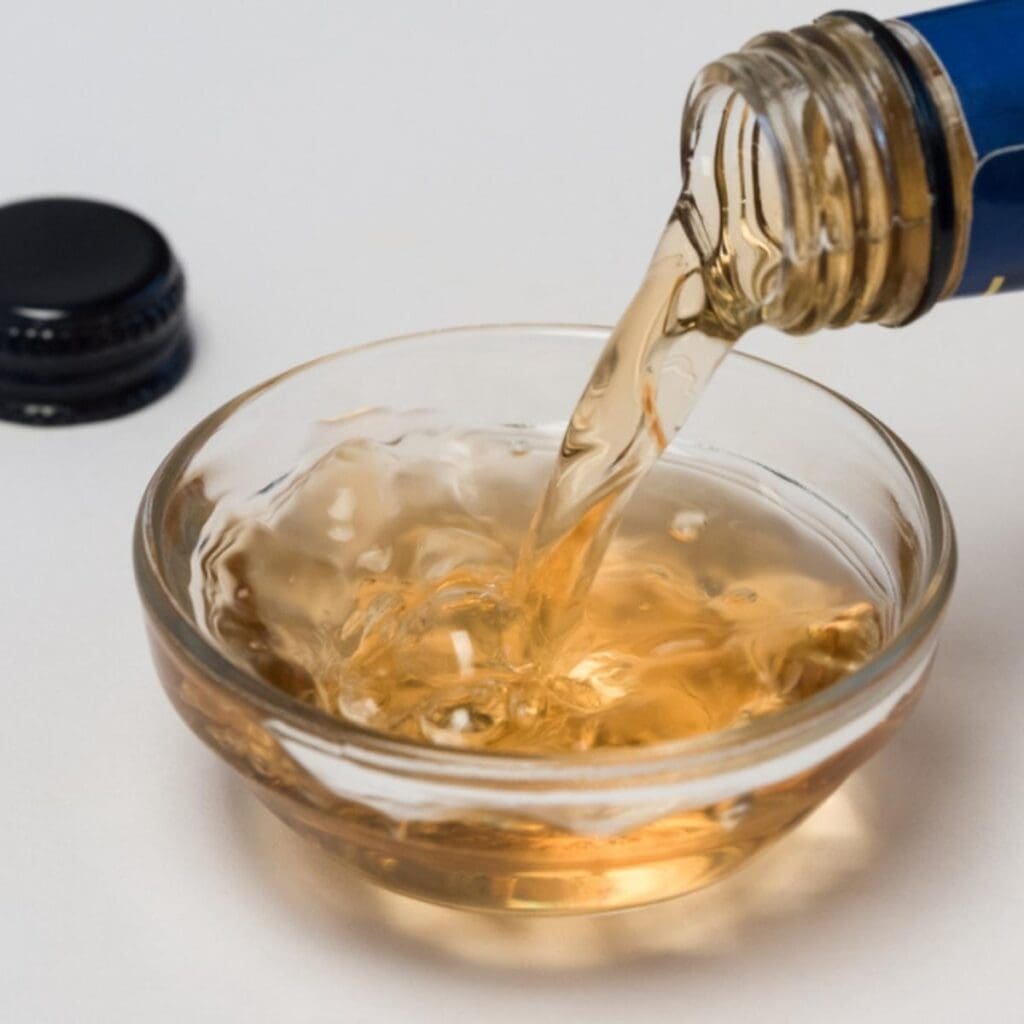
2. Sherry Vinegar
Sherry vinegar, made from sherry, is another good substitute for rice vinegar. It has a slightly nutty kick but is still sweet and tangy.
The extra nuttiness actually works well in many Asian dishes. It’s especially lovely in those that have peanuts or peanut sauce.
You can use the two vinegar types interchangeably at a one-to-one swap.
Sherry vinegar is excellent in marinades, sauces, or any other recipes.
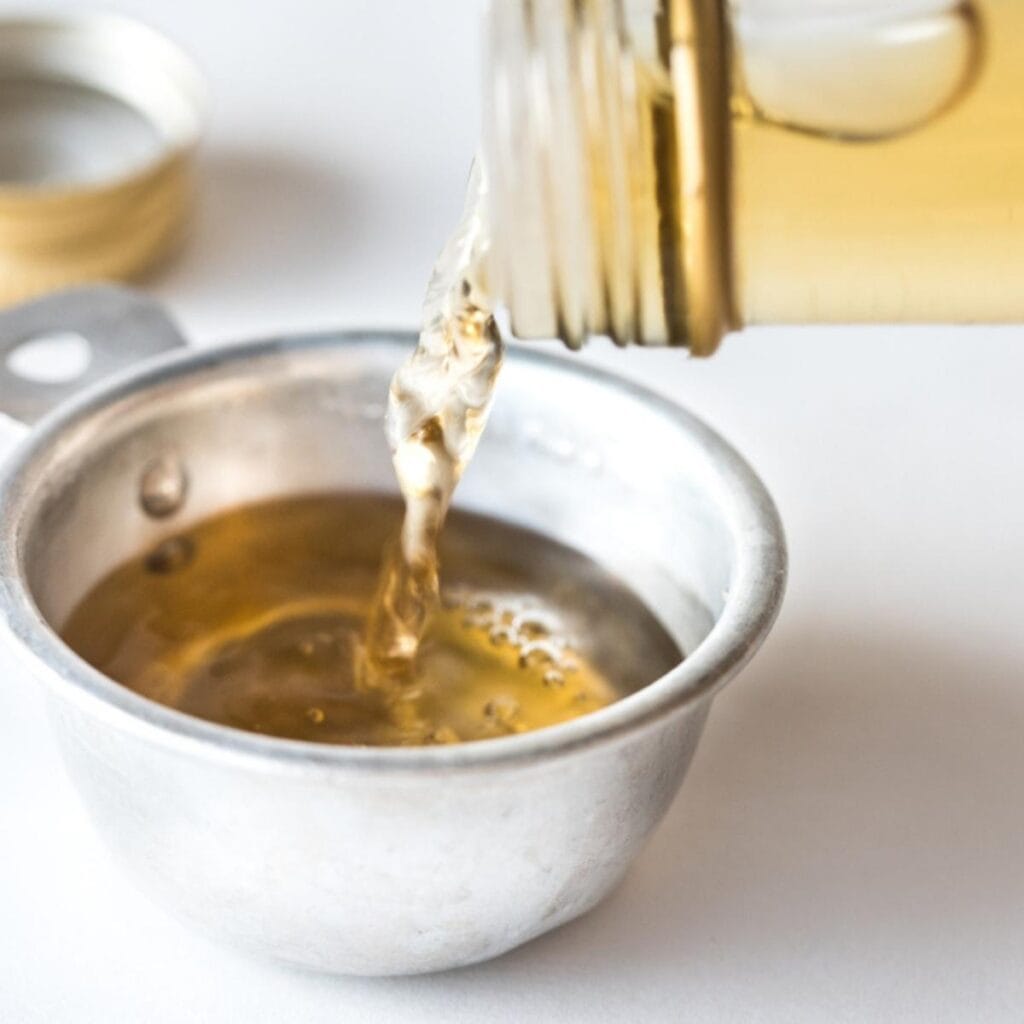
3. Champagne Vinegar
I love using Champagne vinegar in recipes. It just makes me feel so fancy. (This explains why I use it more often than I should.)
That’s how I first discovered it made a good rice vinegar substitute.
I was just playing around with it because I liked it. The result was quite tasty, though.
Champagne vinegar is mild, light, bright, and crisp. It’s a little sweeter than rice vinegar, but not a lot.
You can still swap it one-for-one with rice vinegar.
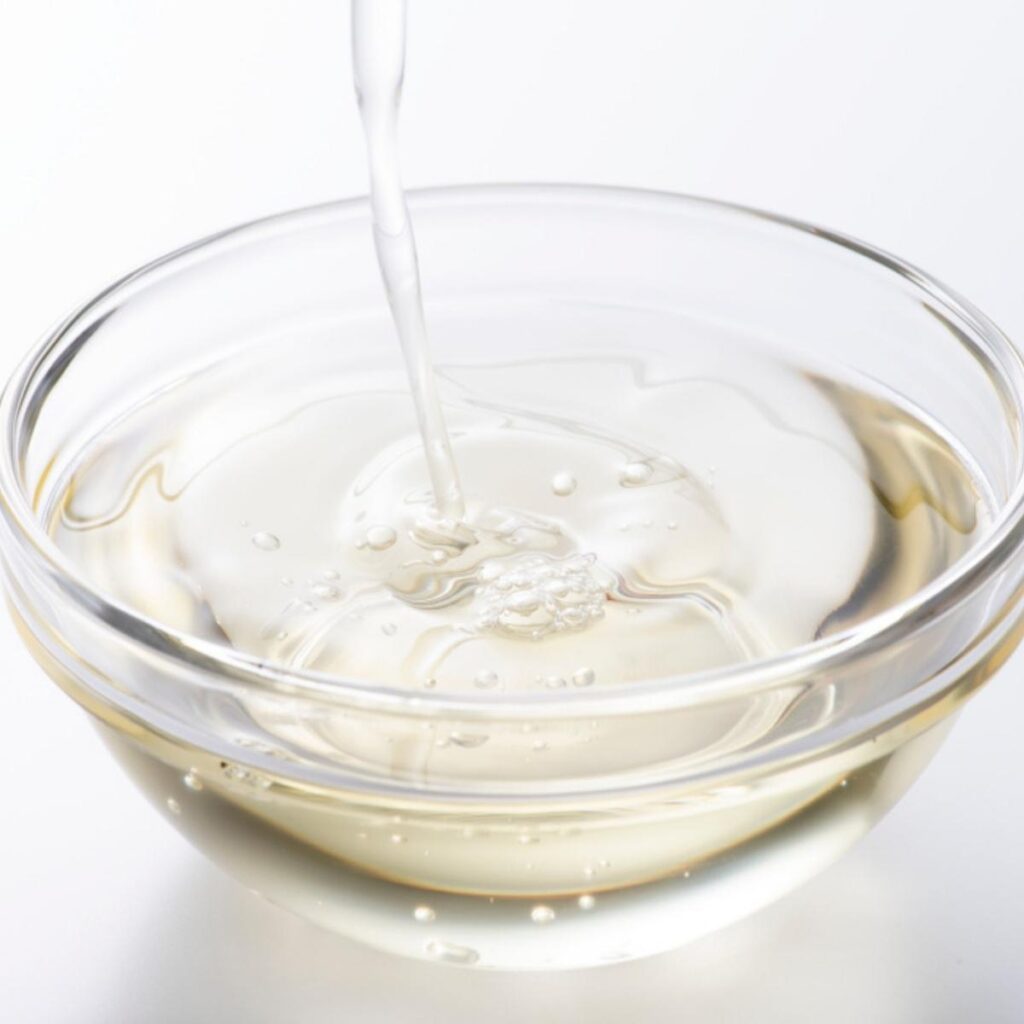
4. Distilled White Vinegar
I’m not a huge fan of distilled white vinegar as a rice vinegar substitute.
However, if you’re in a bind and have nothing else, you can try it.
My suggestion? Add a bit of water to dilute it and then a dash of sugar to sweeten it.
Otherwise, it’s too pungent and acidic to mirror rice vinegar’s sweetness accurately.
Once you dilute and sweeten it, you can substitute that mixture one-for-one.
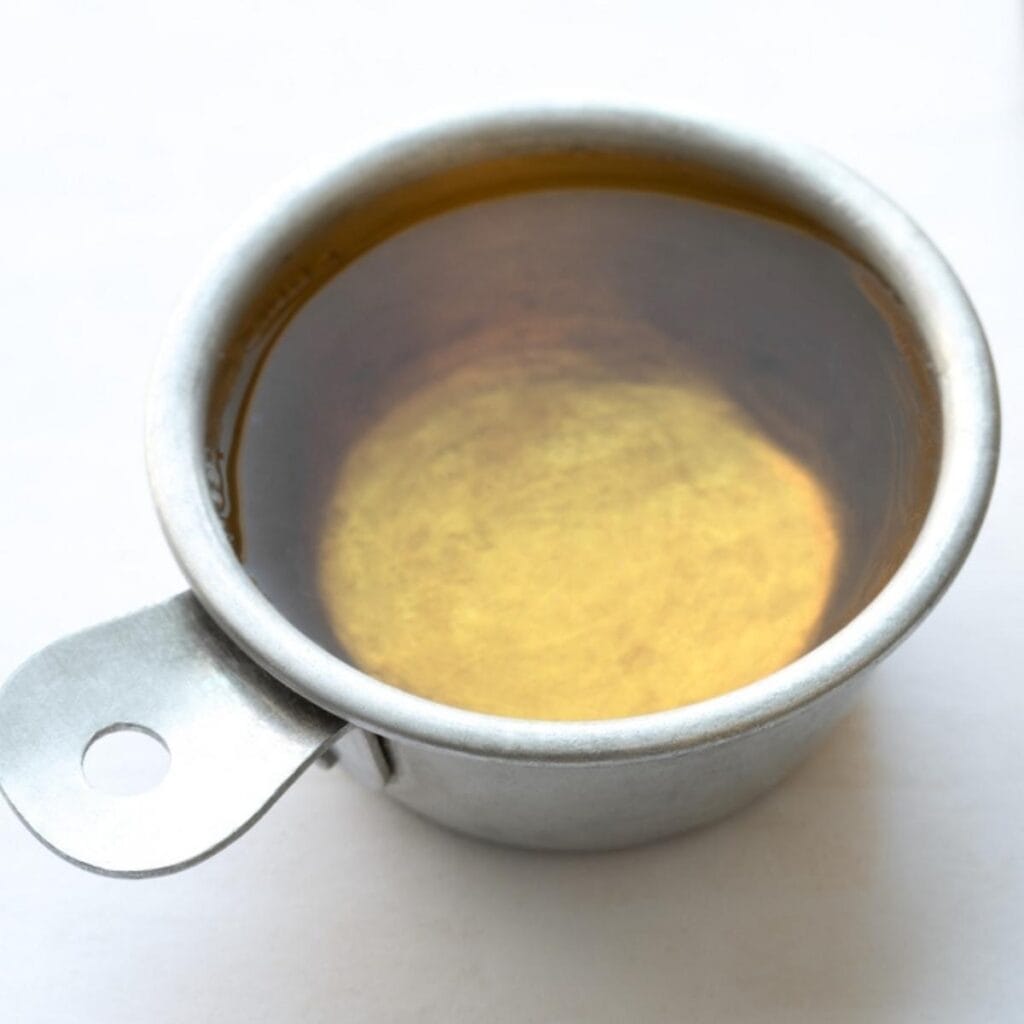
5. White Wine Vinegar
White wine vinegar is an excellent substitute for rice vinegar. It’s probably the best after apple cider vinegar.
It works even better if you sweeten it a little.
You can substitute white wine vinegar for rice vinegar at a one-to-one ratio.
However, try adding 1/4 teaspoon of sugar for every tablespoon of vinegar. It really makes a difference.
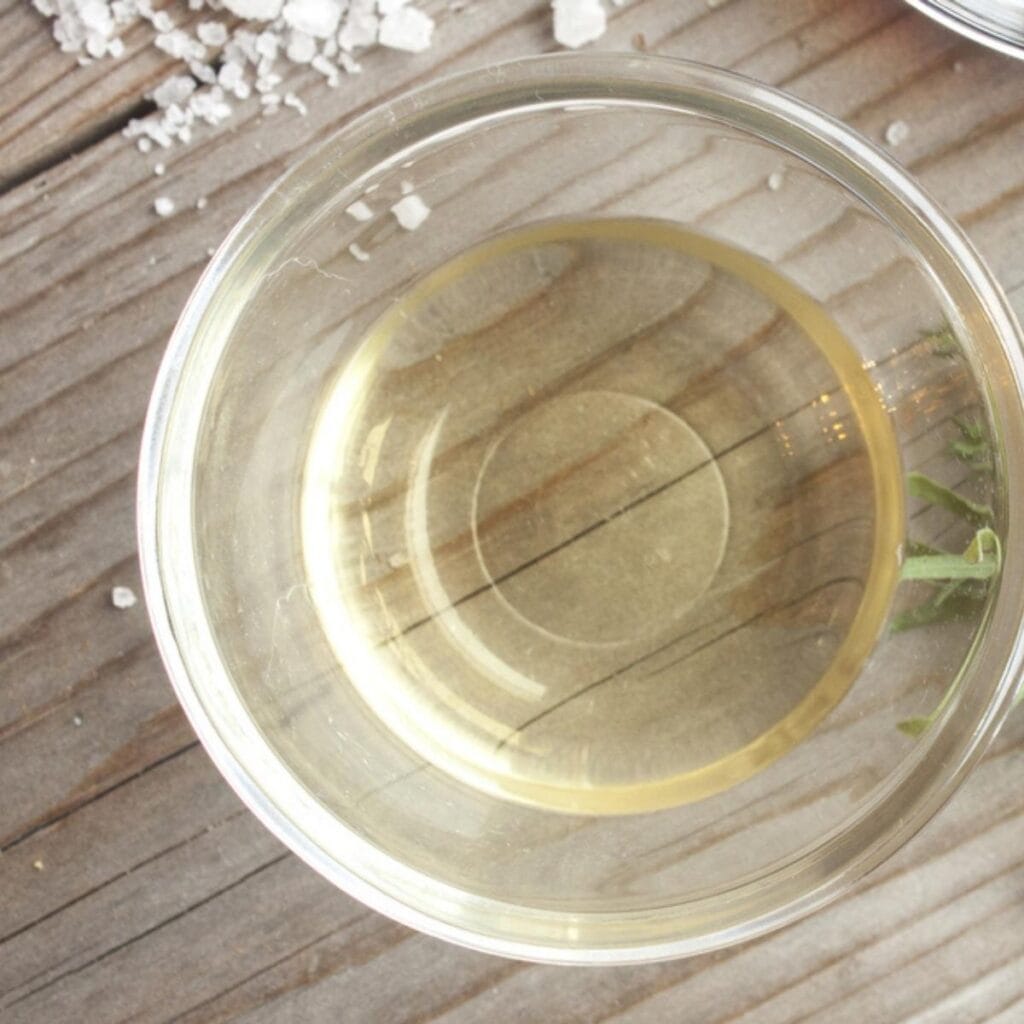
6. White Balsamic Vinegar
White balsamic vinegar has a clean, fresh taste. It’s bright and zingy, but not as much as its darker cousin.
That makes it a nice substitute for rice vinegar.
I prefer to stick to salad dressings and dipping sauces when using this substitute. Like any balsamic vinegar, it’s pretty bold and loud.
It can overpower more subtle flavors, so I avoid it in more complex recipes.
Substitute 3/4 tablespoons of this vinegar for every tablespoon of rice vinegar.
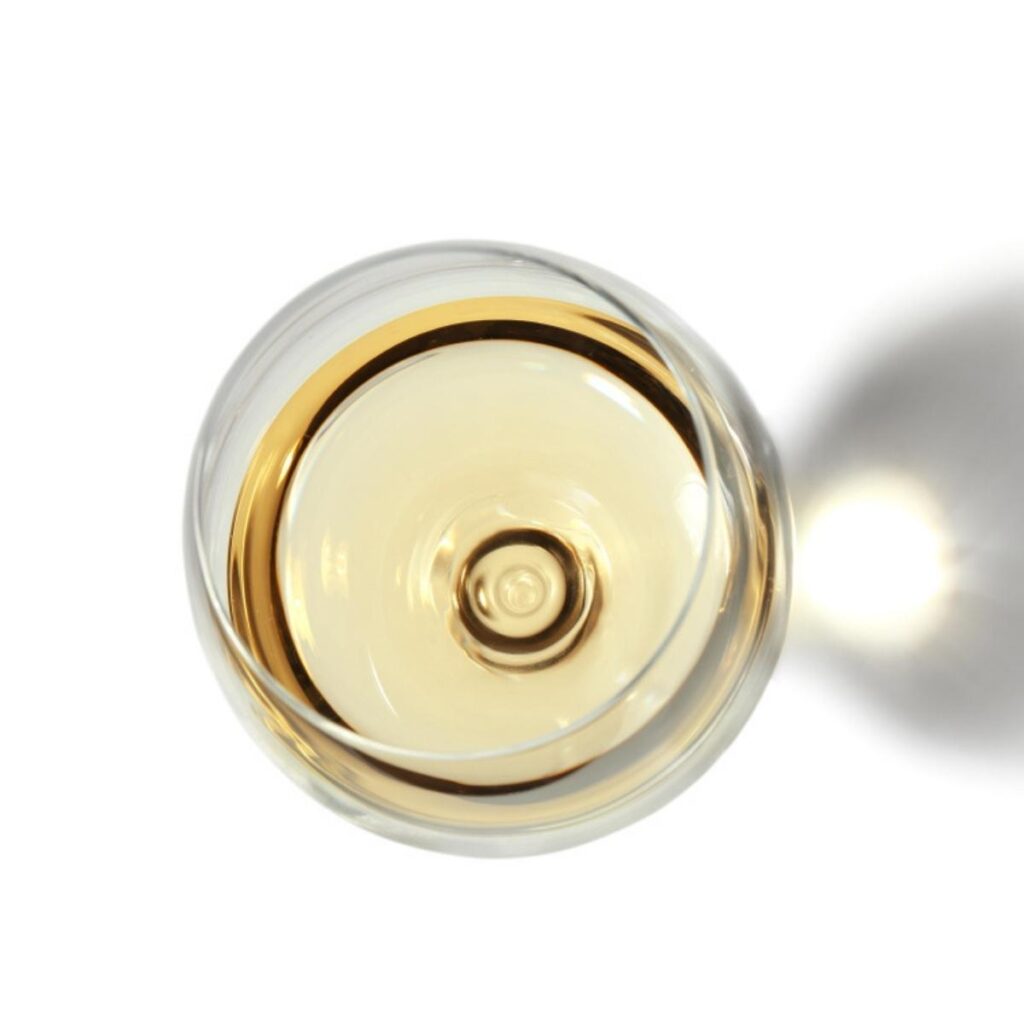
7. White Wine
White wine can also do the trick if you don’t have white wine vinegar.
However, remember to add it only to the foods you’ll be cooking.
Adding it to raw foods leaves the alcohol content in place.
If you cook the food after using it, though, the alcohol evaporates. Also, add a drizzle of orange or lemon juice to the mix.
Doing so will better imitate rice vinegar’s sweet-n-tangy taste.
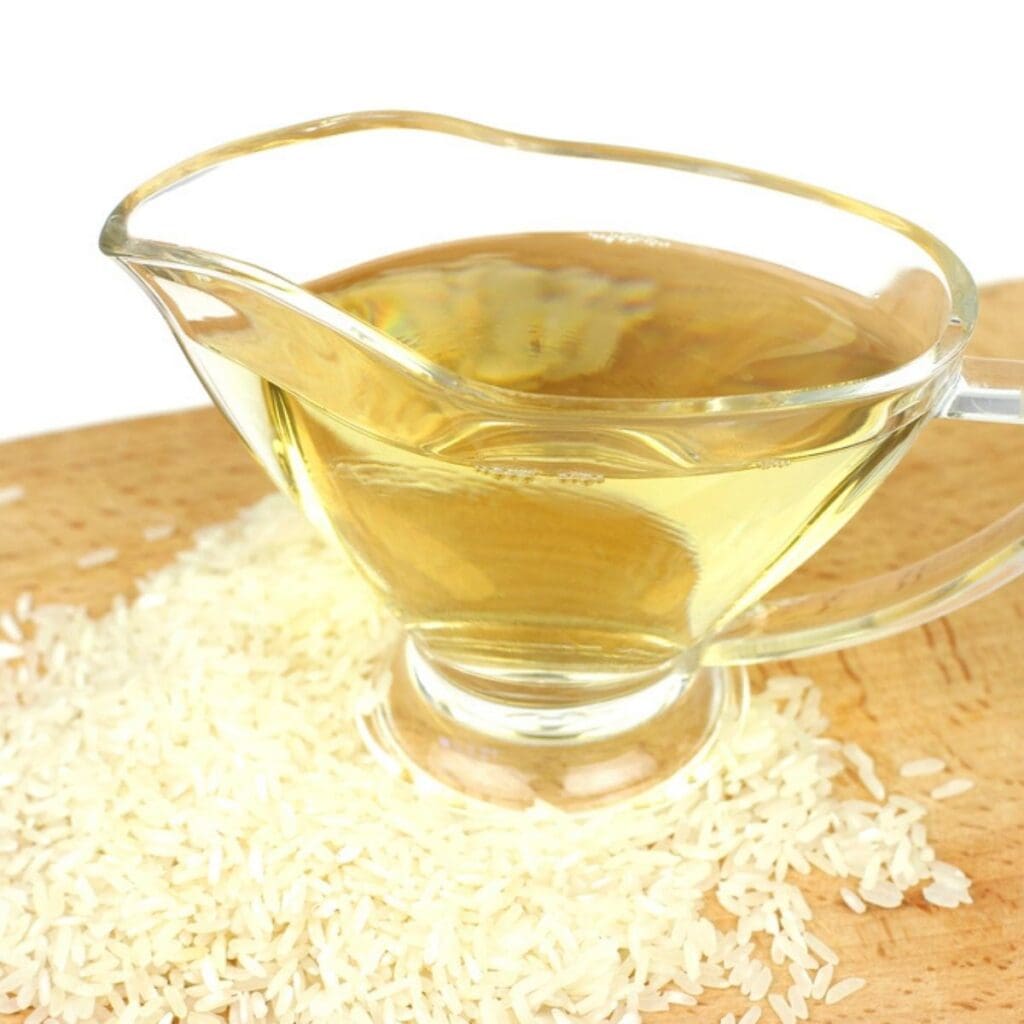
8. Seasoned Rice Vinegar
Seasoned rice vinegar is just rice vinegar with a few extra perks. That means you can easily substitute it for rice vinegar.
However, the additional seasonings may alter the taste of your dish.
Your best bet is to use this only in recipes that require additional seasonings.
According to Healthline, these are the tweaks you should make to your recipes:
- Remove four tablespoons of sugar for every 3/4 cup of seasoned rice vinegar.
- Remove two teaspoons of salt for every 3/4 cup of seasoned rice vinegar.
I follow the same guidelines and have always been happy with my results.
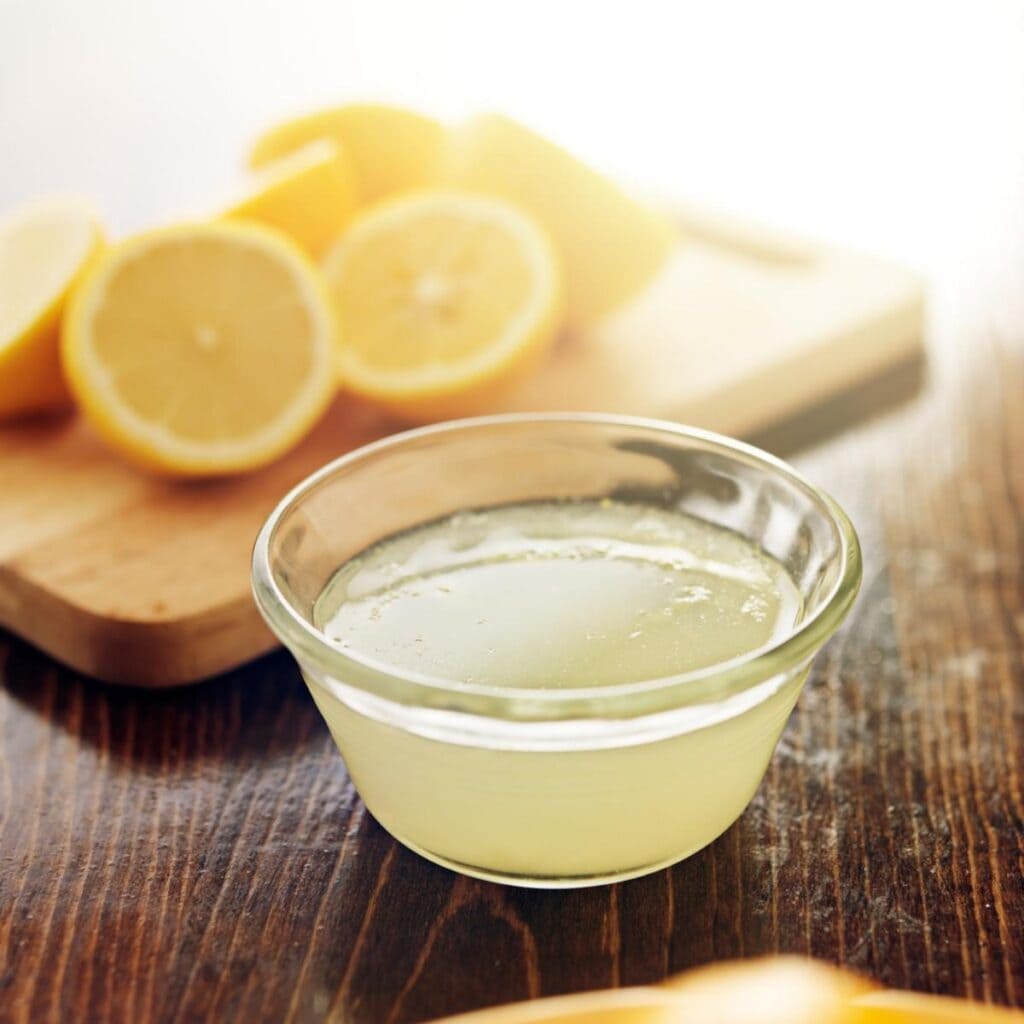
9. Lemon Juice
Lemon juice is probably my least favorite rice vinegar substitute. Still, it will work in an emergency. It has plenty of tart, acidic flavor.
Unfortunately, it lacks the pungency of real vinegar. Additionally, if you add too much, it’ll leave your food tasting lemony!
Use lemon juice for rice vinegar only if you have no other alternatives. Also, don’t swap it out at an even ratio.
Instead, pour in just a dash of lemon juice. Then taste it, and add a little more.
Keep doing this slowly and carefully until you’ve found a taste you like.
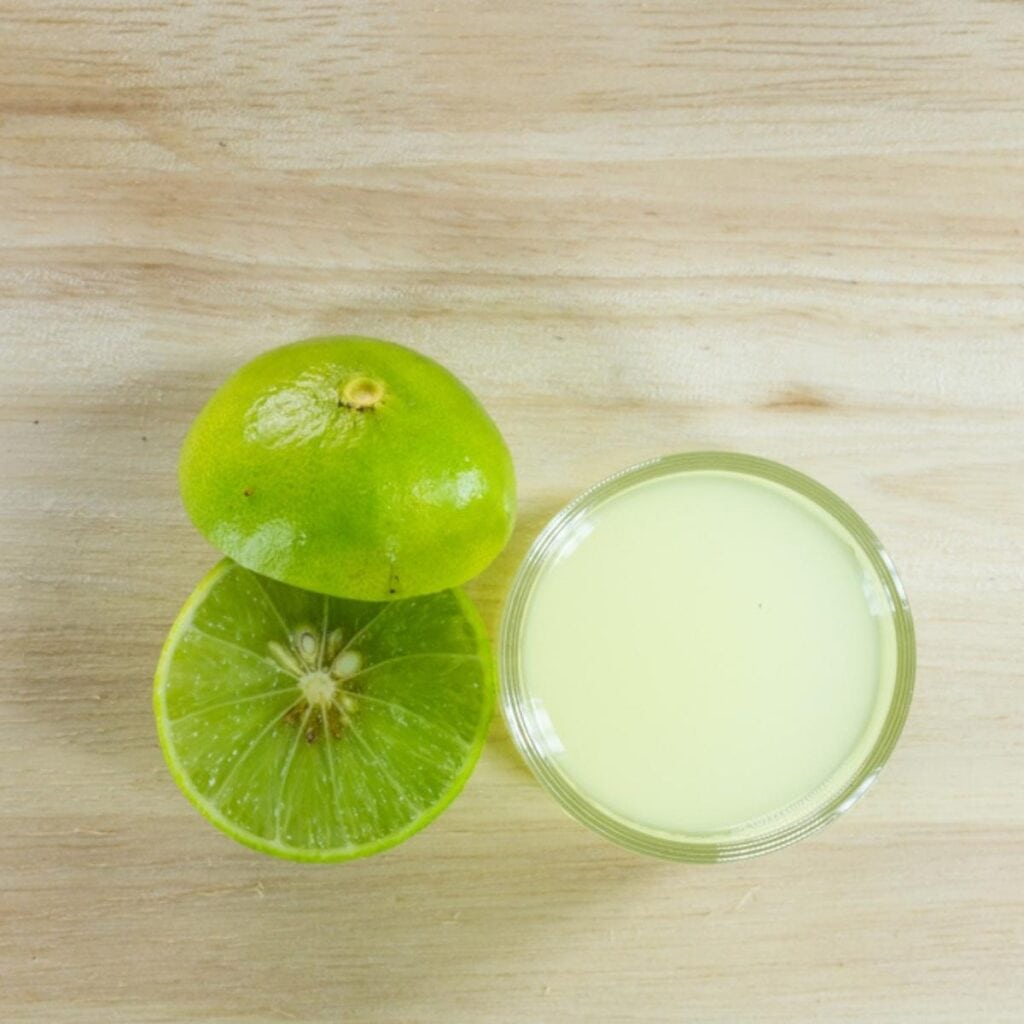
10. Lime Juice
Lime juice is similar to lemon juice because you must start slowly and add it carefully.
Otherwise, you’ll add too much and overpower your other flavors.
Still, I prefer lime juice to lemon juice because it’s a better match for rice vinegar. It has a less zingy, robust flavor than lemon juice.
Instead, it’s mildly sweet, a bit tart, and lightly floral.
It’s still not the best substitute on the list, but it’s far better than lemon juice.
